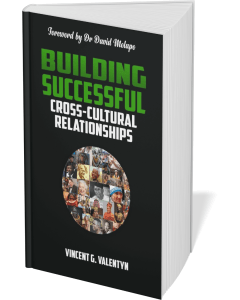Climate Change & Scripture: The Church’s Response. In today’s world, climate change is one of the most pressing global conversations. News outlets, politicians, and activists sound constant alarms, while skeptics challenge the data or question the motives behind the movement. But how does the Church respond? What do the Scriptures reveal about the earth, its stewardship, and its ultimate destiny? This article explores how Christians can think biblically about climate change while holding firm to the eternal promises of God.
1. Creation as Sacred Ground of Climate Change: The Church’s Response
From the opening chapters of Genesis, we see the earth as God’s handiwork—declared “very good” (Genesis 1:31). Humanity’s calling was never reckless dominance but stewardship: to “tend and keep” creation (Genesis 2:15). This means responsibility, care, and protection, not careless exploitation.
When Paul writes in Romans 8 that creation “groans” awaiting redemption, it paints a vivid picture of a world affected by sin. In this light, the debates about climate change touch something deeper: the reality that creation itself is subject to brokenness and longs for restoration.
Christians, therefore, cannot dismiss environmental concerns outright. If the earth is the Lord’s (Psalm 24:1), then caring for it is part of faithful discipleship.
2. The Science Question—or Theological Posture?
For some believers, the climate change discussion raises fears of scientism—elevating human knowledge above God’s sovereignty. The Church rightly resists turning science into an idol. Yet, Christians are not called to ignorance either. Scripture affirms both wisdom and discernment.
Many churches, from Catholic teaching to Protestant ecotheology, acknowledge the evidence of climate change while insisting that human responsibility must be framed theologically. Science may describe the “what” of climate patterns, but theology explains the “why” of stewardship.
The key is balance: engage science without fear, embrace stewardship without bowing to secular alarmism, and keep Christ—not carbon—on the throne.
3. Eschatology and the New Creation: The Church’s Response
The sharpest divide arises when Christians ask: if Scripture promises a “new heavens and a new earth” (Revelation 21:1), why worry about climate change now? Some argue the earth is destined for destruction, making human efforts pointless. Others see renewal, not annihilation.
Biblically, the future is transformation. The world will not be discarded like trash but redeemed like treasure. This means caring for creation is not wasted effort. When believers work against pollution, waste, or climate change, they join in God’s larger redemptive story.
Still, we avoid extremes. Christians should not fall into eco-utopian fantasies nor fatalistic despair. The Church lives in tension: creation is decaying, but God promises renewal.
4. The Church’s Response: From Theory to Practice of Climate Change
Around the world, many congregations are turning theology into action:
- Green church initiatives – Programs to cut energy use and steward resources. (The Church’s Response)
- Advocacy for justice – Since climate change often impacts the poor most severely, churches speak prophetically for those at risk. (The Church’s Response)
- Worship and prayer – Liturgy and services now include prayers for creation, recognizing God as both Creator and Redeemer. (The Church’s Response)
- Education and discipleship – Teaching members to view climate change through a biblical lens, grounding environmental concern in the gospel. (The Church’s Response)
These actions signal that climate change is not just a political issue but a discipleship issue.
5. Tensions, Warnings & Balance
The Church must navigate wisely. A few cautions:
- Eco-piety is not the gospel – Loving creation must not replace loving Christ.
- Justice matters – Responses to climate change must consider human dignity and poverty, not only environmental outcomes.
- Avoid fatalism – Saying “it’s all doomed” contradicts the hope of resurrection.
- Guard against pride – Human solutions alone cannot fix creation. We act, but God redeems.
Conclusion: A Kingdom-Shaped Ecology
When Christians face the climate change debate, the goal is not to join partisan shouting matches but to anchor in Scripture. The Bible presents the earth as sacred, fallen, and destined for renewal. Our role is stewardship—not indifference, not panic, but faithful care.
So whether accused of being too alarmist or too dismissive, the Church has a clear answer: we honor God by caring for His creation while trusting in His promises. Climate change may dominate today’s headlines, but God’s Word reveals the bigger picture—the earth’s future rests in the hands of its Maker.
Climate Change & Scripture: The Church’s Response




